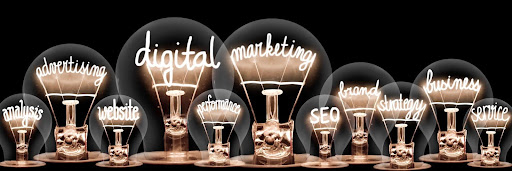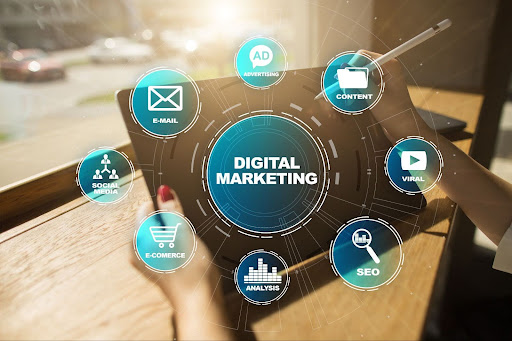Digital marketing has become the heartbeat of modern business strategy, evolving from a nice-to-have to an absolute necessity. It encompasses everything from engaging with customers on social media and optimizing websites for search engines to crafting email campaigns and launching digital ads.
Mastering the art of online marketing is crucial for any business looking to connect with its audience, enhance its brand, and drive growth.
Digital marketing offers a range of strategies to create a more engaging and satisfying customer experience. While most companies recognize the power of digital marketing in reaching large audiences or its efficiency in terms of cost, there are many more layers to uncover. These lesser-known perks give businesses an edge and offer innovative pathways to understand their market, engage with customers, and stay agile in a rapidly changing digital landscape.
We’re here to shed light on some of the unexpected benefits that digital marketing brings to the table. These insights have the power to be transformative and provide new avenues for businesses to grow and adapt.
So, let’s get started and make sure your business thrives and enjoys all the power of digital marketing.

1. Enhanced customer insights
Digital marketing opens up avenues to better understanding your customers beyond surface-level assumptions. You gain a wealth of insights into customer behaviors and preferences, something traditional marketing often struggles to offer with the same precision.
From web analytics to social media metrics and beyond, the tools that accompany digital marketing provide a detailed look into what your audience really wants and how they interact with your brand. For instance, you are able to see which blog posts are resonating with your audience, which social media posts are getting the most engagement, or what kind of email content drives the best open and click-through rates.
Use this information to guide and shape your entire business strategy. Say your analytics reveal that your audience is particularly active on your site during the late evening hours. Armed with this knowledge, you can adjust your content posting schedule to ensure maximum visibility and engagement.
This deep dive into customer behavior also informs your product strategy. If you notice a trend in what your customers are searching for on your site, it might signal an opportunity to expand your product line or improve existing offers.
2. Increased flexibility and agility
Flexibility and agility are crucial for businesses to stay in tune with market dynamics and evolving consumer trends. Unlike traditional marketing methods, digital marketing has the unique ability to pivot strategies rapidly. This allows your business to remain relevant and responsive to your audience.
For example, if a new trend emerges on social media, a company can quickly create relevant content or ads to engage with this new interest. This speed of adaptation is a major advantage in capturing emerging opportunities.
Another illustrative example is how businesses pivoted during the COVID-19 pandemic. With the sudden need for social distancing, many businesses quickly adapted their strategies to focus on online sales and digital interactions. This was crucial for staying operational and connected with customers during challenging times.
The adaptability of digital marketing also allows for ongoing refinement of strategies based on real-time feedback. Businesses can monitor the performance of their marketing efforts and make immediate adjustments for improved effectiveness. This process would be much slower and more cumbersome with traditional marketing methods.
3. Improved customer service
Digital marketing has revolutionized how we promote products and deliver customer service. Customers expect prompt and personalized responses, and digital marketing tools are perfectly poised to meet these expectations.
Social media platforms are at the forefront of this transformation. They offer a direct line to your customers, allowing for quick and personal interactions.
For instance, if a customer has a question or concern, addressing it promptly on your social media page turns a potential issue into a positive experience. This is an opportunity to showcase your commitment to customer satisfaction.
Chatbots are another digital tool redefining customer service. Chatbots are available 24/7 on websites and social media to instantly respond to and provide answers to common questions, even when your team is offline. This constant availability makes a huge difference in customer experience.
Email marketing, often thought of as a promotional tool, also plays a key role in enhancing customer service. For instance, automated emails acknowledge customer inquiries as soon as they come in. This reassures them that their message is important and will be answered swiftly.
You can also use emails to follow up with customers, ask for feedback, or keep them informed about new offerings that might interest them.
Personalization is another significant aspect where digital marketing shines in customer service. Using the data you have about your customers, you can tailor your interactions to suit their specific needs and preferences. This includes using their name in communications or suggesting products based on their purchase history. These tailored interactions create a more engaging and satisfying customer experience.

4. Access to global markets
The digital age has brought about a shift in how businesses approach market expansion. Gone are the days when expanding your business internationally required huge investments and a physical presence in other countries.
Digital marketing has opened up the world for businesses and made global market access more achievable than ever. It has changed the game and enabled businesses of all sizes to engage with customers worldwide.
The beauty of digital marketing is that it inherently knows no borders. Whether you’re a small local boutique or a growing startup, you have the potential to connect with customers across the globe.
SEO
Search Engine Optimization (SEO) is a multifaceted strategy that optimizes your website to attract visitors not only from your local region but from different countries and regions around the world. Here’s how it works:
- Multilingual keywords: SEO experts research and integrate relevant multilingual keywords into your website’s content. These keywords target specific languages and regions, making it easier for search engines to identify and display your content to users in those areas.
- Hreflang tags: Hreflang tags are HTML attributes that indicate to search engines the language and geographical targeting of a specific webpage. By implementing hreflang tags correctly, you ensure that search engines deliver the most appropriate content to users based on their location and language preferences.
- Localized content: To truly resonate with global audiences, it’s essential to create localized content. This means tailoring your content to suit your target region’s cultural norms, preferences, and values. Whether it’s adapting your product descriptions, blog posts, or website interface, localization significantly enhances user engagement.
- Geographic backlinking: Building a network of backlinks from websites in your target regions boosts your website’s authority and visibility in those areas. It’s a strategic approach to show search engines that your content is relevant and valuable to a particular geographic audience.
Social media
Social media platforms have revolutionized the way businesses connect with their global audience. Here’s how to use them to your advantage:
- Geo-targeted advertising: Platforms like Facebook, Instagram, and Twitter offer sophisticated advertising tools that allow you to target audiences in specific regions. You define the geographic area you want to reach, which makes sure that your content is seen by the right people, even if they’re halfway around the world.
- Localized content creation: As with SEO, it’s vital to create content that resonates with local audiences on social media. This goes beyond translating your posts; it means understanding cultural nuances and tailoring your content accordingly. For example, celebrating local holidays or events in your posts helps you connect on a deeper level with your global audience.
- Engagement across time zones: Global audiences operate in different time zones. To maximize engagement, consider scheduling your social media posts to coincide with the peak activity hours of your target regions. This ensures that your content appears in users’ feeds when they are most active and likely to engage.
- Community building: Social media allows you to create communities and foster engagement across borders. Encourage discussions, host live events, and respond promptly to comments and messages. Building a global community around your brand leads to a loyal and diverse customer base.
Incorporating these strategies into your digital marketing efforts will enable you to reach and engage with audiences from different countries and regions effectively. The key is to combine the technical aspects of SEO with the personalized and culturally sensitive approach of social media to create a global marketing strategy that resonates with your target audience, no matter where they are in the world.
Adapting with analytics
What makes digital marketing particularly effective in global market expansion is its ability to adapt to various audiences. Analytics tools give you insights into which countries are most engaged with your brand, helping you tailor your marketing strategy to different cultural contexts.
This might mean customizing your advertising campaigns to resonate with the local culture or translating your website and social media content to better connect with non-English speaking audiences.
5. Cost-effective market research
Digital marketing has transformed market research from a resource-heavy task into a more accessible endeavor. This change is particularly beneficial for small businesses and startups. Due to budget constraints, traditional market research methods might be out of reach for these types of businesses.
The power of digital marketing as a tool for market research lies in its ability to gather a wealth of customer data. Every interaction online, from a click on your website to a comment on your social media post, is a piece of valuable information that sheds light on consumer behavior and preferences.
This kind of data collection is cost-effective and incredibly efficient. Tools like Google Analytics offer in-depth insights into your website’s traffic, such as where your visitors are coming from and what pages they spend the most time on. Similarly, social media platforms provide detailed analytics on post engagement and audience demographics.
Many businesses have creatively used these digital tools for insightful market research. A lifestyle brand might track which of its Instagram posts receives the most engagement to decide on its next product line. Similarly, a tech company might monitor online discussions and reviews to identify features users wish to see in their software.
Traditional methods often focus on historical data, but digital tools let you see what’s happening right now. This immediacy allows businesses to quickly adapt to emerging trends, aligning their offerings with current consumer interests.
6. Enhanced brand authenticity
Consumers are constantly bombarded with content. Being able to identify a brand’s authenticity makes all the difference for consumers. Digital marketing offers unique avenues for brands to express their true selves and connect with their audience on a deeper level.
Storytelling is a key aspect of digital marketing that enhances brand authenticity. Through various online platforms, brands have the opportunity to tell their stories in a way that resonates with their audience. These stories could be about how the company came to be, the values that drive it, or the people behind the brand.
For example, a local coffee shop might use social media to share stories about the origin of their beans or the communities they support. This approach educates customers and builds a connection based on shared values.
User-generated content is another powerful tool in the digital marketing arsenal for enhancing authenticity. When customers share their own experiences with a brand, it adds a level of credibility that traditional marketing alone can’t achieve.
For instance, a clothing brand encouraging customers to post pictures while wearing their products provides real-life testimonials that are far more relatable than standard advertising.
Direct interactions on digital platforms are also crucial for authenticity. Brands that actively engage with their audience on social media, whether by responding to comments, addressing concerns, or even sharing user posts, demonstrate a level of care and attention that boosts their authenticity and shows that a brand is more than a faceless entity — it’s part of a community.

7. Networking and partnership opportunities
In the vast network of online platforms, businesses discover and connect with potential partners, influencers, and industry peers in ways that were not possible before the digital era.
Social media, for instance, is a fantastic arena for networking. Beyond its primary role in marketing and customer engagement, platforms like LinkedIn, Twitter, and even Instagram are instrumental in connecting with other businesses and professionals. These connections lead to fruitful discussions, idea sharing, and, eventually, collaborative ventures.
Online communities and industry-specific forums play an important role in fostering these connections. Active participation in these communities helps businesses find others with shared interests or complementary goals. Engaging in these spaces builds relationships that could evolve into strategic partnerships.
Take, for example, a tech startup that engages with a larger corporation through LinkedIn. By initiating thoughtful conversations and presenting innovative collaboration ideas, the startup establishes a partnership that provides access to broader markets and additional resources.
8. Environmental friendliness
As businesses and consumers alike become more environmentally conscious, digital marketing stands out as a greener choice compared to traditional marketing methods. This shift towards more sustainable practices benefits the planet and aligns with the values of an increasing number of eco-aware customers.
Think about the traditional marketing landscape, which often involves a lot of paper and physical materials — from flyers and posters to direct mail campaigns. All these require resources to produce and distribute, ultimately leaving a gigantic environmental footprint.
In contrast, digital marketing lives online, cutting down drastically on the need for these materials. Websites, social media, and email campaigns allow businesses to spread their message far and wide, minus the environmental cost associated with producing and distributing physical marketing materials.
Another aspect where digital marketing shines in terms of eco-friendliness is waste reduction. We’ve all seen heaps of promotional print materials that end up in recycling bins or landfills. By going digital, companies sidestep this waste and reach out to potential customers in a way that is both effective and environmentally responsible.

Trust Revity Marketing Agency
At Revity, we pride ourselves on taking a comprehensive approach to digital marketing and consider how all aspects of your digital marketing strategy can work together cohesively. Whether you want to expand your reach to new markets, refine your online presence, or develop creative content that resonates with your audience, we’re here to help.
Contact Revity Marketing Agency online or call (801) 877-0608. Let us be your guide!





